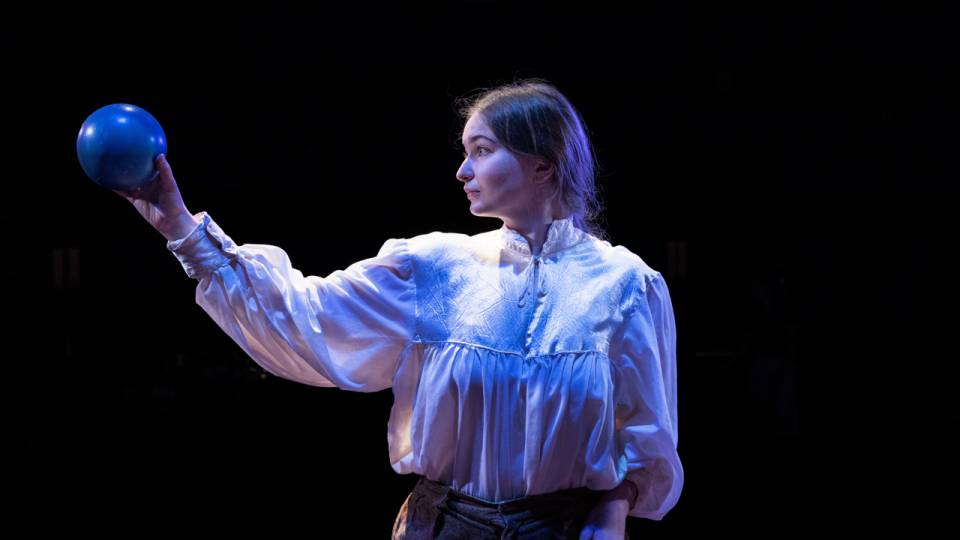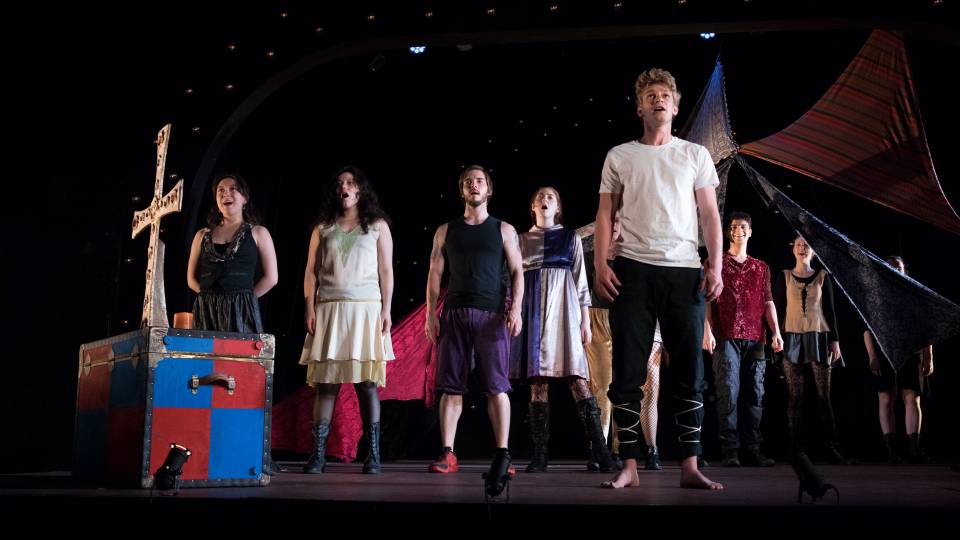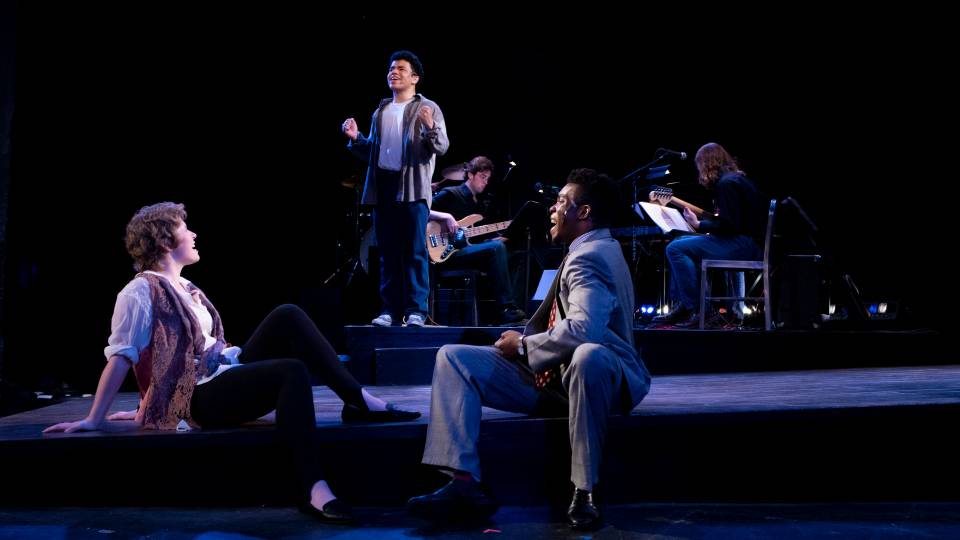
The children wrote descriptions of the characters they would play at a 1970s disco. Characters included a disc jockey, a dancer and a snake charmer.
The imaginations of 11 children briefly transformed the lawn in front of Murray-Dodge Hall one recent Friday afternoon into a 1970s New York City disco.
No props or costumes were necessary to convey the flashing lights, thumping music or crowds of dancers -- just the creative minds of the 7- to 12-year-olds attending the Princeton Summer Theater (PST) children's workshop on playwriting.
Led by PST company members Maggie Tominey, Shawn Fennell and Aaron Strand, the children had only a few hours to develop the setting, time period and characters for an original play they would dramatize by the end of class.
"For all of our workshops it's important we allocate time for the children to actually perform, and this year we've shifted the focus even more into creating," said Fennell, PST's artistic director and a member of Princeton's class of 2010. "We want to engage kids to enact the funny, compelling and interesting ideas they have."
The playwriting class is one of six children's workshops exploring aspects of theater such as musicals, acting, and sets and costumes offered by PST this summer. The repertory theater company also produces four main stage shows and two children's shows each summer, and this year is sponsoring its first young playwrights contest for high school students.

Fennell helps students get warmed up for their performance.
"The theater is a magical place in all our lives, and we want to foster similar good experiences here for younger people," said Strand, a New York University student.
Tominey, the company manager, said leaders want to create an environment where students drive the workshops. They may steer the group in a certain direction, or give suggestive feedback, but it is the children's concepts that end up on stage.
"We want them to feel that they are not just being talked at, but are participating in the creative process," said Tominey, a student at the University of Texas-Austin. "They don't need a lecture; they are out of school and this is an opportunity for them to get on their feet and express themselves."

Students sat in a circle with workshop leaders offering ideas for where their play would take place and what events would cause the scene's dramatic action.
At the playwriting class, students and teachers collaborated while sitting cross-legged in a circle in a small room in Murray-Dodge Hall, discussing ideas for where the play would take place and the conflicts that would cause the scene's dramatic action. After the group selected a disco as the setting, the children scattered to different corners of the room with crayons and paper, scribbling descriptions of the character they wanted to play.
"My character is a 20-year-old girl named Nicole who is the DJ. She doesn't really care about the disco, but she needs a good job to make money to pay for college," said 12-year-old Chunchun.

Aaron Strand, a PST company member, talks with a student about the character she created for the children's play. The students performed the original scene for their families on a recent Friday afternoon.
Chunchun, who attended previous PST workshops, said she'd like to become an opera singer.
"I go to plays as much as I can. I like to read books, and seeing a play about a book I've read really makes all the scenes and characters come alive," she said.
Alex, 9, boasted about the man he would act.
"He's a snake charmer," he said, and showed how his character taps his foot and plays his flute to draw the reptile from his basket.
Sprawled across the floor with the children, Strand helped a student figure out how her character -- a shy girl who wants to learn how to dance -- might behave at the disco.
"Do you know people at school who would be considered shy? How do they hold their bodies? Would it be like this?" Strand said, as he stood up, crossed his arms loosely in front of his body and sheepishly bent his head down.
"It's so much fun to watch them," Strand said. "You give them two directives for a scene: Think of something your character wants and why he or she can't have it right now, and the kids go out and know what to do more or less. If we all had that kind of freedom and lack of tension on the stage, we could be great actors."

PST company manager Maggie Tominey (far left) and Fennell, a member of the class of 2010, practice the play with students on the lawn in front of Murray-Dodge Hall.
The group later moved outside to practice what they'd come up with. The three teachers joined the children 'on stage,' with Fennell causing a stir when his character, landlord Jim Lancaster, shut down the disco.
After a few runs and the ad-libbing of lines, the children worked together to solve the play's main problem: Alex's snake charmer would buy the place from the landlord with the money he earned performing at the disco.
The day concluded with the group acting the five-minute scene for their families.
Nine-year-old Sara's grandparents beamed as they watched her perform. Her grandfather, Dominic Vigiano, was the one who suggested Sara sign-up for her first theater class.
"I thought this would be great for her," Vigiano said. "We fool around sometimes at home, and she becomes different characters and likes to tell stories."
If it wasn't for a family vacation, Sara said she would have returned for the next week's workshop.
"I want to try out for a school play now," she said smiling at her grandfather.







